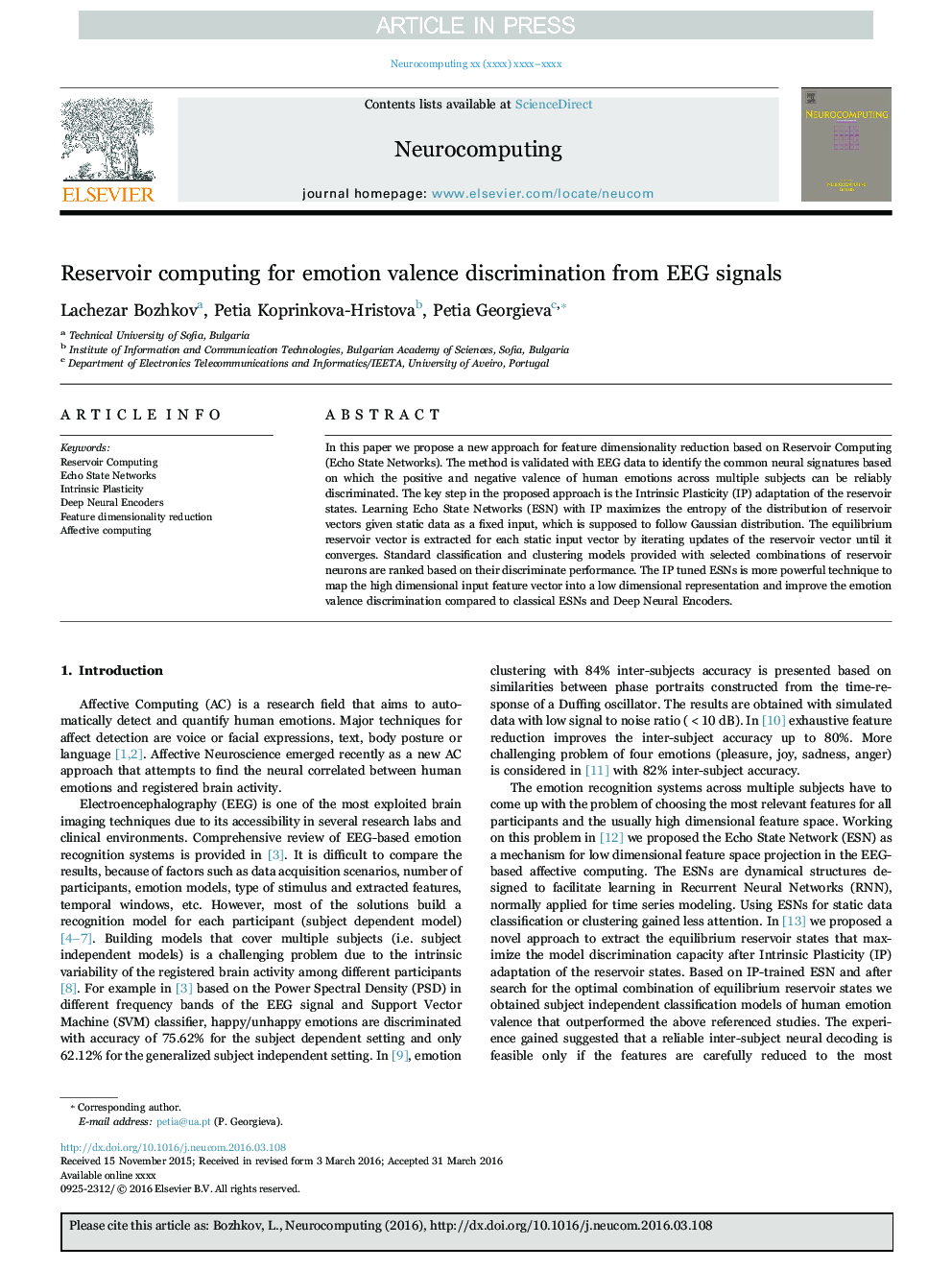| Article ID | Journal | Published Year | Pages | File Type |
|---|---|---|---|---|
| 4947739 | Neurocomputing | 2017 | 13 Pages |
Abstract
In this paper we propose a new approach for feature dimensionality reduction based on Reservoir Computing (Echo State Networks). The method is validated with EEG data to identify the common neural signatures based on which the positive and negative valence of human emotions across multiple subjects can be reliably discriminated. The key step in the proposed approach is the Intrinsic Plasticity (IP) adaptation of the reservoir states. Learning Echo State Networks (ESN) with IP maximizes the entropy of the distribution of reservoir vectors given static data as a fixed input, which is supposed to follow Gaussian distribution. The equilibrium reservoir vector is extracted for each static input vector by iterating updates of the reservoir vector until it converges. Standard classification and clustering models provided with selected combinations of reservoir neurons are ranked based on their discriminate performance. The IP tuned ESNs is more powerful technique to map the high dimensional input feature vector into a low dimensional representation and improve the emotion valence discrimination compared to classical ESNs and Deep Neural Encoders.
Related Topics
Physical Sciences and Engineering
Computer Science
Artificial Intelligence
Authors
Lachezar Bozhkov, Petia Koprinkova-Hristova, Petia Georgieva,
